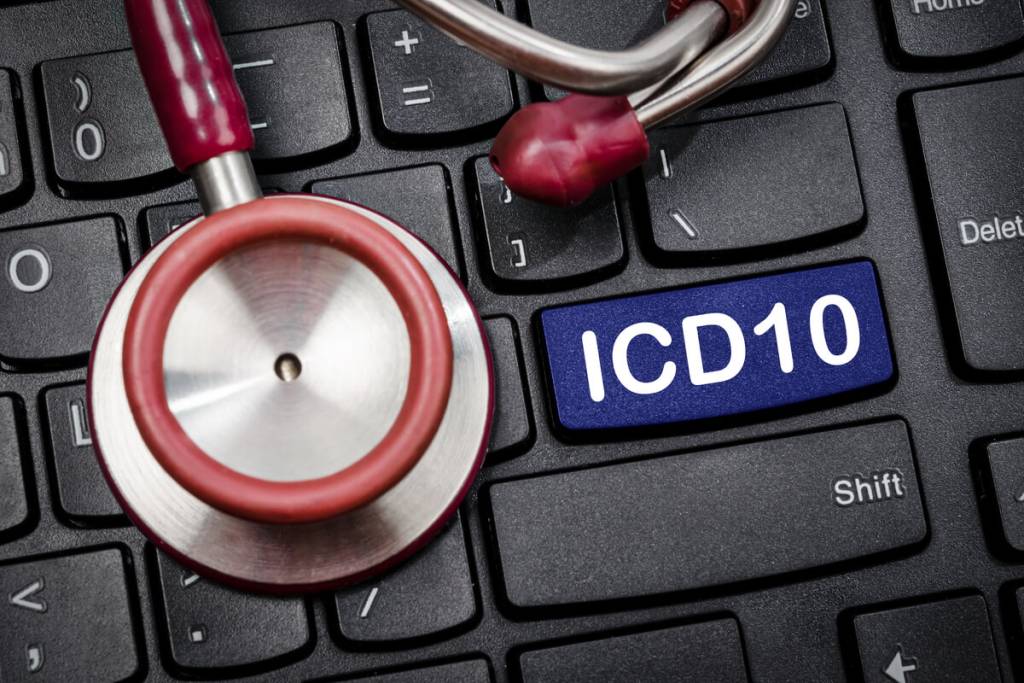IN THIS ARTICLE
Written By Marielle
Contents
Medical coding and billing are among the fastest-growing occupations in the United States. The United States Bureau of Labor Statistics (BLS) classifies medical coders and billers as medical secretaries. Demand is predicted to grow as the elderly population relies more on healthcare services.
Each medical institution requires employees in a medical coding and billing role. Physicians and office managers can do these tasks in addition to their primary responsibilities or delegate them to one or more staff members.
But because the clinical staff should focus on patient care, trained professionals must do these critical administrative tasks to guarantee that healthcare practitioners get compensated for their services. This is where medical billing and coding come into the picture.
Read this article to learn how medical billing and coding work, the differences between medical billers and coders, and when you should consider outsourcing medical coding to third-party agencies.
Source: Employment Projections – U.S. Bureau of Labor Statistics
Medical Billing and Coding: Quick Intro

Medical billing acts as the intermediary between healthcare providers and insurance carriers. Medical billers are responsible for creating and submitting claims to insurance companies to obtain reimbursements for a healthcare provider’s services. Medical billing starts when a patient makes an appointment with a physician.
Medical coding, on the other hand, is the process of translating patient healthcare into billable service codes. Medical coders use patient records, medical notes, and other medical transcriptions to assign correct procedure codes.
International Classification of Diseases, Tenth Revision (ICD-10) codes represent external causes of injury, illnesses, symptoms, and abnormal findings, which a medical coder must know. Medical coders must also be familiar with Current Procedural Terminology (CPT) codes, which describe what a healthcare provider does on or for a patient.
These codes serve as a means of communication between physicians, hospitals, insurance companies, and other health-related institutions.
Difference Between a Medical Biller and a Medical Coder
People mistakenly refer to medical coding and medical billing as a single discipline, but they are two different jobs that require different personality traits and skills. You can be both a medical coder and biller if you acquire enough experience, but many choose to be a medical coder or a medical biller.
First, the work is not the same. Medical coders translate services provided for patients into codes using patient records, medical notes, ICD-10 and CPT codes, and computer software. These specialists must be familiar with medical terminology and adhere to CPT coding guidelines to assign procedure codes accurately.
On the other hand, medical billers are responsible for filing insurance claims and posting payments to accounts based on the instructions provided by coders. They follow up on claims with insurance providers and work out denials.
Second, medical coders and medical billers usually have different personalities. Medical billers are primarily responsible for communicating with patients and insurance providers. They must be comfortable talking over the phone to resolve issues regarding bills or claims.
Medical coders work more independently than medical billers. The former are usually introverted, detail-oriented, and analytical professionals who sometimes find it hard to talk to different people. But coders have to collaborate with healthcare staff from time to time.
Finally, working with patients directly is sometimes challenging, and this is one of the duties of a medical biller. Medical coders work with billers, healthcare practitioners, and other staff, but they do not interact with patients.
Read: How Health Partners Benefit from Healthcare BPO Services
Why Does Someone Choose to Become a Medical Biller or Coder?

When we are ill, we interact with doctors and other medical professionals in charge of our treatment plan. But how do these healthcare professionals get compensated for their services? This is where medical billers and coders step in, meaningfully contributing so that patients do not pay more than they should and can continue to access medical care.
Medical coders and billers are important because healthcare providers would not be properly reimbursed without them. Many people want to become medical coders and billers for the following reasons:
1. Healthcare Professionals and Insurance Carriers Depend on Them
Medical billing and coding are critical components of the healthcare system.
Medical billers serve as the bridge between healthcare facilities and insurance providers. Physicians trust medical coders to interpret their medical notes and translate them into billable codes. You can have a career that makes you feel significant and trusted by healthcare professionals.
2. The Jobs Are in Demand
You can easily find a medical coding or billing job because these are in demand. Demand for these specialists remains high despite furloughs and layoffs due to the global health crisis. With additional employment opening up in the future, you can have more career options and life-saving work.
3. You Can Work Remotely
You can work remotely if you are a medical coder or biller. Depending on the kind of agency or office you work for, you have the option to work remotely part-time or full-time. If you get far enough in the industry, you can ultimately become a perpetually distant freelancer.
4. You Can Develop Self-management Skills
Due to the analytical and linear nature of the professions, it is up to you to accomplish your objectives without supervision. When you work in a data-driven profession, you can work independently and manage your time properly.
5. It Is Easy to Get Training to Become a Medical Biller or Coder
Training for a career in medical billing or coding is not time-consuming. Most programs span between a year and two years to get you started, and any more certifications are optional. You can train through professional organizations even if you are still a student.
Why Should You Outsource Your Medical Billing?

Some medical offices handle their own billing. With an in-house billing staff comes the responsibility for any difficulties. Whether they be organizational concerns, late payments, or any other regular obstacles in the medical billing process, your in-house billing staff can soon get overwhelmed.
Outsourcing this function can eliminate frequent sources of stress in your medical business. If you trust an external medical billing service, you can depend on their professional experience to determine the best and most efficient medical billing method. This allows your medical practice to concentrate on other areas of growth.
But ensure that this is the best option for your business. While medical billing outsourcing is not appropriate for every practice, it can give your revenue cycle management (RCM) a far more regulated and sustainable approach.
The fundamental advantage of outsourcing for flourishing practices is its long-term sustainability. As a clinic’s patient load, personnel, and other aspects change over time, an outsourced billing service can retain a higher degree of consistency (and control) over its financial operations.
What Are the Duties of a Medical Biller?
A medical biller collects payments for medical treatments and services. Their responsibilities include setting up patient payment plans, obtaining pre-authorizations and referrals, reviewing patient bills, and following up on unpaid claims. They work in medical administrative offices to guarantee timely and correct billing.
In healthcare settings, medical billers organize incoming and outgoing payments for medical services. They engage with patients about unpaid balances and handle administrative duties such as invoicing insurance and processing payments. They also examine patient documents to ascertain how much money the patient owes and whether any other insurance pays a portion or all of the remainder.
Medical billers keep track of each step of the billing process and save patient data in a billing database. They are also responsible for resolving billing issues and working out claim denials by insurance providers.
Four Types of Medical Coding Systems

Medical coding encompasses the following sets of codes:
- ICD Codes
- CPT Codes
- HCPCS Codes
- DRG Codes
ICD Codes
ICD was initially designed to serve as a healthcare classification system, allowing for the nuanced categorization of a broad range of signs, symptoms, aberrant findings, complaints, social conditions, and external causes of damage or sickness via the use of diagnostic codes.
It is a categorization system established collectively by the World Health Organization (WHO) and 10 worldwide institutes to allow for the statistical grouping of medical words recorded on death certificates by doctors, medical examiners, and coroners.
As part of the Centers for Medicare and Medicaid Services (CMS), the National Center for Health Statistics of the Centers for Disease Control and Prevention (CDC) oversees ICD code revisions.
CPT Codes
CPT codes provide physicians and other healthcare professionals with standardized language for classifying medical services and procedures to expedite reporting, improve accuracy, and boost efficiency.
Medical service evaluation criteria are frequently established using CPT codes for administrative management objectives, including claim processing.
CPT is the most extensively used medical nomenclature in the United States. The codes are used for reporting radiological, medical, laboratory, surgical, genomic sequencing, anesthesiology, and evaluation and management (E/M) services covered by public and commercial health insurance systems.
Five-digit CPT codes can either be numeric or alphanumeric, depending on the category in which they are assigned. CPT code descriptions are clinically oriented and adhere to uniform criteria, ensuring that a broad group of users can communicate effectively across clinical healthcare paradigms.
HCPCS Codes
The Healthcare Common Procedure Coding System (HCPCS) Levels I and II are another coding system used in the United States. HCPCS codes are used to charge Medicare and Medicaid beneficiaries.
HCPCS is a set of codes that indicate procedures, supplies, goods, and services available to Medicare beneficiaries and people enrolled in commercial health insurance plans.
Level I codes are numeric and comprise CPT codes. Level II codes are based on the HCPCS alphanumeric code set and are used to describe non-physician items, supplies, and procedures not covered by CPT.
Level III codes, or HCPCS local codes, were designed for use by state Medicaid agencies, Medicare contractors, and commercial insurers in particular programs and jurisdictions. They are still included in the HCPCS reference coding book.
Specific payers demand coders to supply Level III codes in addition to Levels I and II. These codes, however, are not recognized at the national level.
DRG Codes
Diagnosis Related Groups (DRG) are a technique for categorizing hospital patients into one of around 500 groups predicted to have comparable hospital resource use. Since most insurance companies reimburse based on the DRG used, the accuracy of all components is critical to obtaining appropriate payments.
Can I Teach Myself Medical Billing and Coding?

Medical coding and billing can sometimes be challenging, but you can definitely learn them. Like most healthcare occupations, being a medical biller or coder requires training and education. You cannot expect to become an excellent medical biller or coder overnight.
Success in these professions requires a thorough understanding of the industry’s codes and categorization systems. You must be adept at using professional software for data coding and patient billing.
But if you like studying, medical billing and coding might come naturally to you. With proper experience and training, you can easily become an expert. And it may even be worth it in the long run.
If you want to become a certified medical coder, the American Academy of Professional Coding (AAPC) advises but does not require that you get an associate degree. But in these professions, knowledge and experience are critical.
Further reading: Research Says Medical Billing Outsourcing Is Worth It
How Much Do Medical Coders or Billers Make?
Medical coders and medical billing professionals earn differently, depending on multiple factors such as specialization, qualification, location, kind of employment, and experience.
After accounting for these variances, the Bureau of Labor and Statistics (BLS) determined that the typical median annual pay for medical records and health information professionals in 2020 was $45,240 (or $21.75 per hour).
The American Academy of Professional Coders (APCC) reports that non-certified billers and coders earn approximately $47,200 a year, while certified ones make roughly $60,000 a year. On average, medical billing and coding specialists earn roughly $54,700 a year.
How Hard Is It to Learn Medical Coding and How Long?

Medical coders have a great deal of responsibility, and it may seem challenging to learn so many procedure codes. Like any vocation, medical coding has some specific difficulties.
While human anatomy and healthcare are subject to considerable gray areas, medical coding is black and white. Transforming hazy and complicated medical symptoms into distinct, detectable codes can be complex.
Another difficult component is staying abreast of industry developments. Medical coding systems have evolved significantly in recent years—and maintaining compliance requires adaptability.
Changes in governance and healthcare legislation can affect coding, so coding specialists need to stay updated to prevent recording false information.
The Bottom Line
A medical billing or coding career can be a good fit if you have a strong desire to help others and an eye for detail. This is a gratifying career that enables you to have a positive impact on the larger healthcare scale. Without medical billers and coders, healthcare professionals would not be rewarded for their efforts, and patients would have to pay more than they should.
A career in medical billing or coding can also entail a period of exploration and growth. The more experience you get and the more issues you encounter on the job, the more skilled you will become. The more you grasp potential concerns and the meaning of each specific code, the better prepared you will be to face the days ahead.
Medical coders and billers can advance in the field and become health information managers, medical and health services managers, or hospital coding managers, to name a few, as their skills and expertise increase over time





